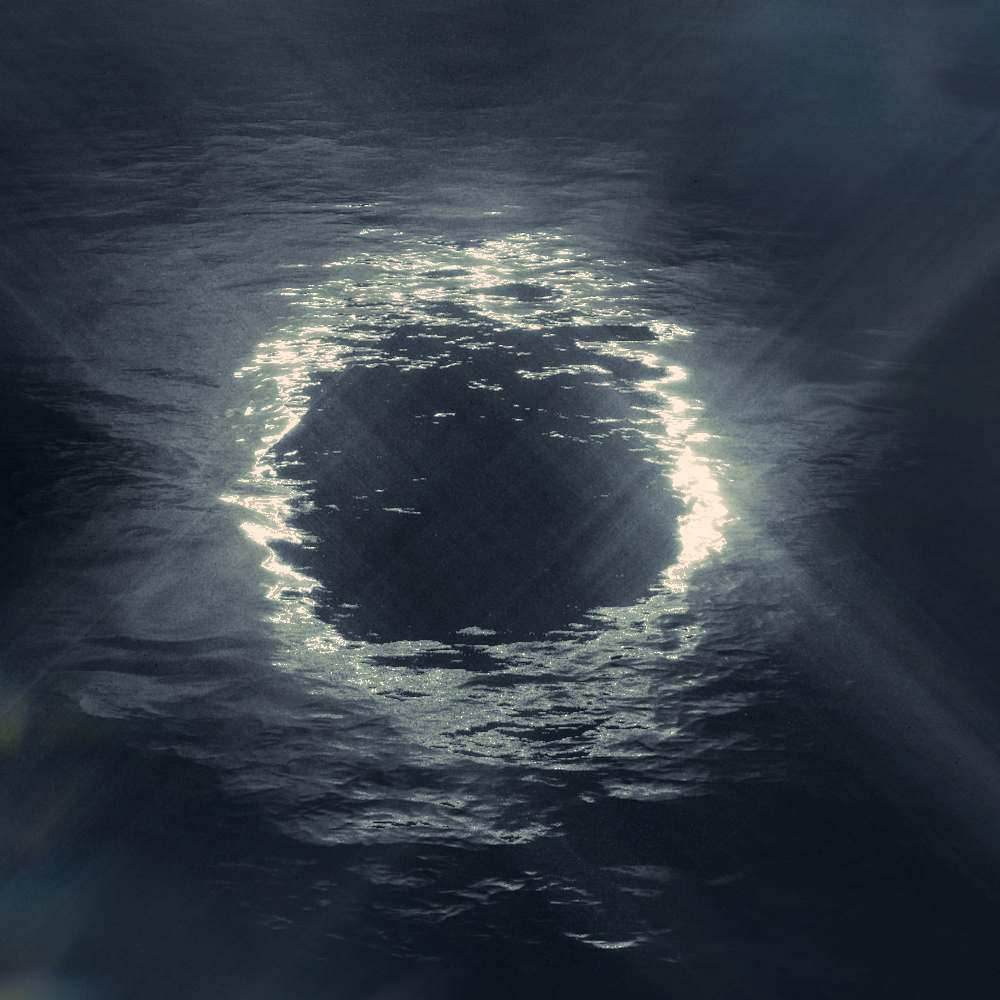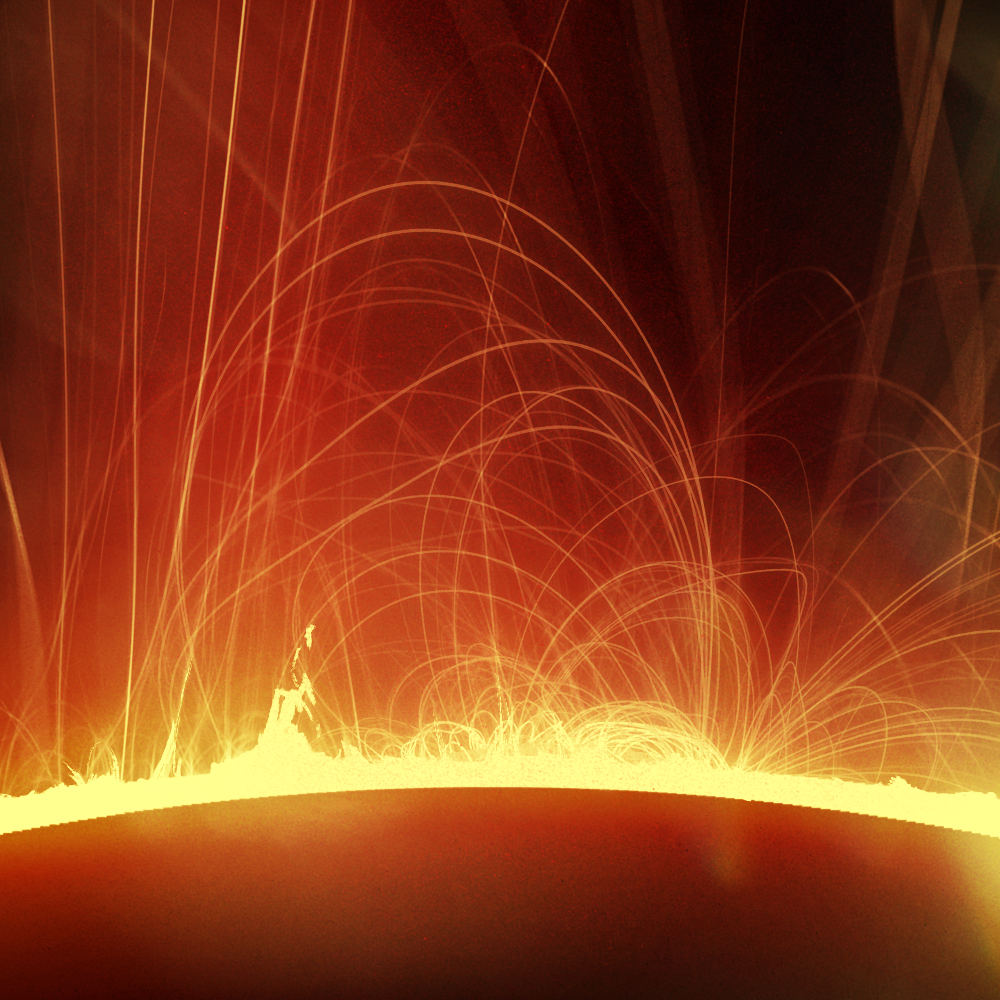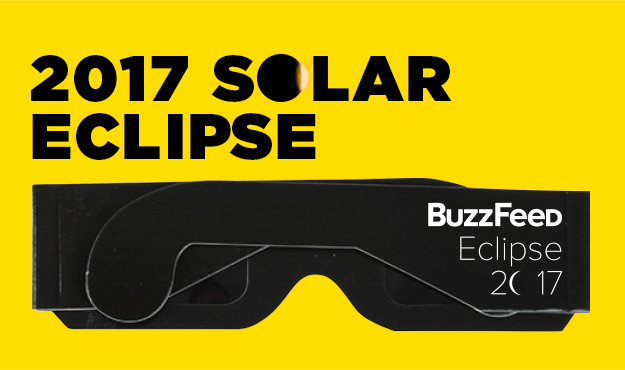As you might've heard, the total solar eclipse that will occur on Aug. 21 is kind of a big deal. For the first time in 99 years, the moon's shadow will make its way across the entire United States from the west coast to the east. This means that for the first time in a few generations, anyone in the contiguous 48 states will be within a day's drive of the path of totality, when the moon will completely block the sun and day will briefly turn to night.
Experiencing an eclipse from within the path of totality is considered so singular and marvelous that amateur eclipse chasers and professional astronomers alike started booking travel, scheduling transportation, and reserving lodging years in advance. BuzzFeed News talked to eclipse chasers and challenged them to describe as best they could the life-changing magic of witnessing a total solar eclipse. Here's what they shared.
“I feel as if I am in the presence of a deity, and I understand that in this vast universe, I am nothing.”
"Experiencing a total solar eclipse is the closest most of us will ever get to space travel. During totality, the earth's blue sky draws back like a receding curtain, revealing what's above our heads but unseen at any other time: the inner reaches of our solar system. You see a most un-sunlike sun — a frilly, shimmering halo — flanked by planets and bright stars.
You see a most un-sunlike sun — a frilly, shimmering halo — flanked by planets and bright stars.
It's as if you are standing on some distant world, looking back at creation.
I should note that in my normal life I am a staid, logical, scientifically minded person. A total solar eclipse taps a whole other part of my being. I feel as if I am in the presence of a deity, and I understand that in this vast universe, I am nothing. It's a terrifying and humbling realization, and yet —paradoxically — it brings me great peace."
—David Baron
author of American Eclipse: A Nation's Epic Race to Catch the Shadow of the Moon and Win the Glory of the World
Boulder, Colorado
“The sky is a lovely shade of twilight blue, and a handful of bright stars and planets will shine forth, and all around the horizon you’ll see pastel sunset colors …”
"Inside the path of totality, you will see the most spectacularly beautiful sight you have ever seen in nature: the everyday sun totally blocked by the moon, revealing the sun’s outer atmosphere, or corona. The silhouette of the moon appears blacker than any black you’ve ever seen. The solar corona is a diaphanous glow all around the sun, pearly white, with loops and streamers extending several solar diameters in various directions, tracing the sun’s otherwise invisible magnetic field.
The sky is a lovely shade of twilight blue, and a handful of bright stars and planets will shine forth, and all around the horizon you’ll see pastel sunset colors...
At the very beginning/end of totality, you’ll see brilliant red arcs of the sun’s chromosphere, or lower atmosphere, just beyond the moon’s advancing/retreating limb, or edge, and you may see some prominences — jets, arcs, or loops of red chromospheric gas — jutting off the edge of the sun. The sky is a lovely shade of twilight blue, and a handful of bright stars and planets will shine forth, and all around the horizon you’ll see pastel sunset colors coming from beyond the moon’s shadow in all directions, where the sun is still shining. You’ll feel the temperature drop noticeably, and you may feel changes in the wind — both its speed and its direction. All of this lasts just a couple minutes, though it feels as if it’s over within seconds."
—Rick Fienberg
press officer, American Astronomical Society
Washington, DC
“The only thing I can compare that to is if you’re snorkeling ... things underwater look all different colors than they do up on land.”

“When you experience a total eclipse, it kind of looks like the end of the world. It really does. If it’s a clear day, the sun is high in the sky. It’s supposed to be there — there’s not supposed to be a black hole in the sky right where the sun should be. And that black hole has pink flames and silver streamers around it. Then it gets dark — it’s doesn’t get totally dark — it’s more like a deep dusk. And because the light that’s provided is coming from the sun’s silvery corona, what you see all has a different color than normal.
Your brain goes, Whoa, what’s going on? I’m not on a drug. I’m not in a movie. Yet everything is changing.
The only thing I can compare that to is if you’re snorkeling ... things underwater look all different colors than they do up on land. But you know you’re not snorkeling — you know you’re not under the water. And so it’s the only time in my life where all the colors that I’m used to living with every day start to go weird. Your brain goes, Whoa, what’s going on? I’m not on a drug. I’m not in a movie. Yet everything is changing.
And that happens just before the total eclipse, maybe a couple minutes before. And whenever that happens, the hair on the back of my neck starts to stand up, because it’s just so weird ... and I’ve now chased about 10 or 12 of them since 1970.”
—Doug Duncan
astronomer, Department of Astrophysical & Planetary Sciences of the University of Colorado
director of the Fiske Planetarium
Boulder, Colorado
"It became eerily dark on the hills and over the bay, where intermittent camera flashes signaled the presence of unseen boats."
“I went to southern England for the total solar eclipse in 1999. But of course, England isn't known for clear skies, and my choice to watch from there came with some degree of risk. When the day came, I gathered with a small group of locals on a hill overlooking the ocean, and we stood under a clouded sky to wait. As the eclipse progressed, once in a while, the crescent sun peeked through a break in the clouds, and we watched the strange narrowing shape with our eclipse glasses. By the time totality arrived, the cloud cover was complete, but the occasion was deeply surreal and affecting nonetheless. It became eerily dark on the hills and over the bay, where intermittent camera flashes signaled the presence of unseen boats. The air grew colder. Streetlights came over the road. Sea birds shrieked and flew about, confused.
The air grew colder. Streetlights came over the road. Sea birds shrieked and flew about, confused.
And in every direction, all along the horizon, we saw a pale glow like a 360-degree sunset, where the land in the distance was still in the bright light of midday.
It would have been nice to see the solar corona around the darkened sun. But even without that, the experience of being in a momentary island of full night surrounded by daylight was an extraordinary one, and it made visceral the connection we have to the usually predictable motions of the cosmos. Go for clear skies if you can find them, but even under a blanket of clouds, standing on the Earth in the midst of a total solar eclipse is a phenomenal thing.”
—Katie Mack
theoretical astrophysicist
Melbourne, Australia
“The moon has reached the sun, moving in front of it in a slow waltz.”
“Eclipse day arrives. Four years of preparation had gone by, months of building the equipment, weeks of testing, days of assembling and retesting and an early morning of finalizing details. Despite how tired everyone is, we are all filled with anxiety and excitement.
All of us stand in the cold, waiting for the moment of truth. Someone in the distance shouts, ‘First contact, first contact!’ The moon has reached the sun, moving in front of it in a slow waltz. Spectators watch, take pictures, and do jumping jacks in an effort to keep warm while totality is reached, knowing that the temperature will drop a few more degrees. Finally, totality is reached. The moon stands between us and our sun not knowing, or perhaps knowing, what phenomenon she has created. Darkness comes. The sun’s atmosphere reveals itself, shining over us. … No words can describe the feeling one gets when witnessing such an event. The entire world around us has disappeared. It is just us and the eclipse.
The entire world around us has disappeared. It is just us and the eclipse.
How lucky we are! Slowly, as the moon starts to eclipse our star, I start to realize how small we truly are and how small we truly feel. I realize how wonderful life is and how fortunate we all are to be in this very spot as scientists — but beyond that, as people who have come together to make this an unforgettable week.
The moon continues to waltz her way across the sky. The sun slowly appears behind the moon. Light ensues once again, final pictures and videos are taken, a few more cheers can be heard and lots of smiles can be seen. ... The moon has left the stage and the sun proudly shines knowing we are all talking about him."
—Nathalia Alzate
postdoctoral research associate in Space Weather, Aberystwyth University, Wales
UK visiting scientist, Institute for Astronomy of the University of Hawai'i, Manoa Honolulu
“Chasing a total solar eclipse is the act of looking for unusual events to break up your usual routine.”
“For me a total solar eclipse is not just the passage of the moon in front of the sun’s face. It’s a pretext for seeing the world in a different way. Day is not always shiny; it can be as dark as night even at midday. Chasing a total solar eclipse is the act of looking for unusual events to break up your usual routine, and discover new things.
It can be the beginning of a new life, as it was for me.
A total solar eclipse can be very inspiring and teachable, and it can be the beginning of a new life, as it was for me. Witnessing a total solar eclipse mesmerized me, and got me addicted to the world of astronomy, the world of spectacular and exciting science-based phenomena. A total solar eclipse consists of the most interesting and exciting activities — traveling, adventure, photography, education, observation, etc. It’s fantastic to find yourself among the lovely family of eclipse chasers, including a great number of members all around the world.”
—Mohamad Soltanolkotabi
amateur astronomer and astrophotographer
Girona, Spain
“It looks like it’s electrified. It’s purely an electrical, magical effect.”

“There was Aruba in 1998. That was my second total solar eclipse and I was jumping for joy. ... You’ve got this beautiful coastal beach and this turquoise water. You looked up and you had this redness around the horizon ... and then you had this violet sky and there’s a silvery sheen, the rays of the corona extending in two directions — they’re streaming out. ... That’s the real sun that you don’t [usually] see. Now it’s exposed itself to you — it’s showing you what it’s got. The moon took over. The moon did it for you.
The colors, the electricity of it all. It looks like it’s electrified. It’s purely an electrical, magical effect.
It really blew me away. The colors, the electricity of it all. It looks like it’s electrified. It’s purely an electrical, magical effect.
Then everything goes back to normal within seconds, and then it’s like, Where’s the next one? You want to do that again immediately ... you want to just take it in again. Well, guess what, you have to wait — not days or months, but years. ... Time stops, too, when you’re there.”
—Mike Kentrianakis
solar eclipse project manager at the American Astronomical Society
New York City
“I am not a very emotional person, but when I listen to recordings I have made at previous eclipses, I often get tears in my eyes.”
“Total solar eclipses are truly awe-inspiring. Other natural phenomena can be spectacular, such as the aurora borealis, Yosemite Valley, or a beautiful sunset, but none of those shake you to your core in such a fundamental way. The sun is so central to life on Earth that when it slowly disappears and then is suddenly replaced by a jet-black circle surrounded by the white wispy corona, your lizard brain can scarcely comprehend it. And no other phenomenon elicits such universal reactions of joy and excitement among all those who experience it. No photo or video can convey the experience of a total eclipse, but audio recordings come closest. I am not a very emotional person, but when I listen to recordings I have made at previous eclipses, I often get tears in my eyes.”
—Evan Zucker
eclipse chaser
San Diego
“You might gasp, scream, or perhaps cry at this astonishing vision.”
Your emotion at this moment will be bittersweet, giddy from the experience of totality, and sadness it has drawn to an end.
“A total eclipse of the sun is unlike any other experience you can witness in nature. The moment when the moon's shadow envelopes you will be a full sensory experience; the sky suddenly darkens, planets and brighter stars reveal themselves, and the sun's corona, invisible to us all our lives except for the few precious minutes of total eclipse, will stun you with its beauty. You might gasp, scream, or perhaps cry at this astonishing vision.
When totality draws to a close, you will be a changed person. You will feel a new connection to our universe and your spirit will be lifted above the Earth. Your emotion at this moment will be bittersweet; [you'll feel both] giddy from the experience of totality, and sadness it has drawn to an end.
Your first thought after totality will be When and where is the next one? And you will resolve to see the next great American eclipse passing from Texas to Maine on April 8, 2024.”
—Michael Zeiler
co-owner and operator of Great American Eclipse
Santa Fe, New Mexico
“It looked like a black hole in the sky.”
Even now, 26 years later, I have tears running down my face reliving it again.
“We were on the beach on the northwest corner of the big island of Hawaii, in a state park. The wind died down and so did the waves that were coming in — there were no waves at all by the time of totality. The birds had gone to roost for the 'night' and all the tropical frogs were chirping in abundance. The clouds were breaking up over the mountain, and there it was! The partial eclipse was well on its way. A short time later, it happened — the black moon took over and blocked out the sun — it looked like a black hole in the sky! At the same time, the corona burst out all around it and I was just totally overwhelmed with the magnificent beauty of it! It was an explosion of colors in my heart and mind, and I was covered by waves of goosebumps from head to toe. Even now, 26 years later, I have tears running down my face reliving it again. Each new total eclipse that I see, I just relax and let the same thing happen to me again. I can hardly wait until Aug. 21."
—Jackie Beucher
vice president of the Astronomical Society of Kansas City
Overland Park, Kansas
“When totality is over, and the normal world returns, I feel an incredible loss and a yearning to stand in that familiar shadow again.”
There is a rush of intense emotion ... goosebumps at the creeping darkness ... and intense euphoria as the sun is fully covered and the world goes dark.
“For me, a total solar eclipse is an intense emotional moment — it's like I feel every human emotion in a short period of time. There is a rush of intense emotion, a sense of wrongness when it starts to go dim, a primitive fear that gives me shudders and goosebumps at the creeping darkness of the moon's shadow, and intense euphoria as the sun is fully covered and the world goes dark.
Then comes the stupendous awe of what I am seeing — there is a hole in the sky where the sun should be. It is wonderful, thrilling, exciting, and incredible. This is followed by moments of deep reflection; I am struck by how vast our universe is, and how incredibly small and insignificant I am within it. It reminds me that we are all connected, and makes me feel humbled by how lucky I am to experience such incredible beauty. Time stops and is, indeed, no longer relevant. I love looking around at the world, seeing sunset colors all around, and feeling as if I am in a different reality. When totality is over, and the normal world returns, I feel an incredible loss and a yearning to stand in that familiar shadow again.”
—Kate Russo
psychologist and author, Being in the Shadow
Belfast

